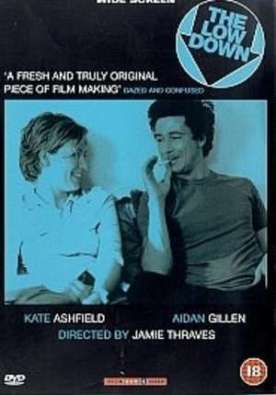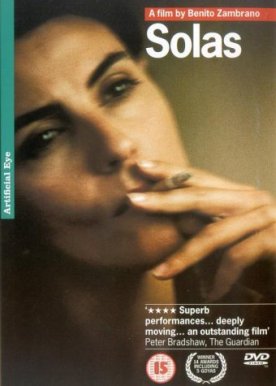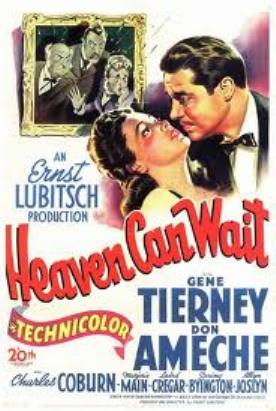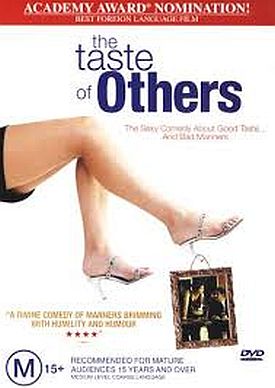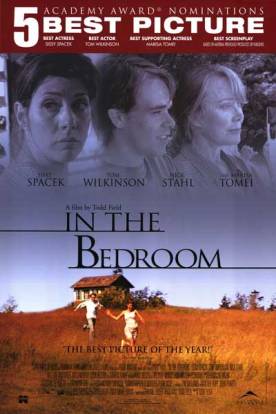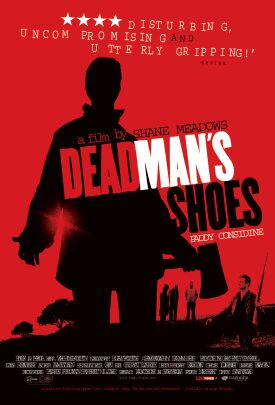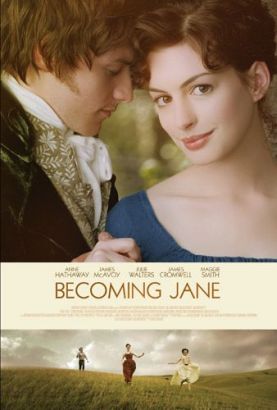Low Down, The
The paradox of cinéma vérité is that the excitement of being in ever closer touch with real life via the camera is always being undermined by the banality of what real life generally has to show us. For this reason, the most vérité generally has to be the most feigning. But the various sorts of tricks that directors play in order make us think that what we are watching is relatively unmediated reality—moving cameras, for instance, or lots of ambient noise on the soundtrack—are by now so familiar that they can scarcely produce the desired effect. In The Low Down, Jamie Thraves gets round these difficulties by exploiting the banality of his material. A life as uninteresting as that of his feckless central character, Frank (Aidan Gillen), simply must be real. Yet underneath the surface boredom, Thraves has worked out the drama of Frank’s story as carefully as if it were a well-made play.
Frank is one of a three man shop working out of a garage in London to make giant faces or hands out of plaster of Paris or fiberglass for use on television quiz or game shows. He is a man probably in his late 20s whose lack of ambition or gumption has left him directionless, vaguely discontented with his shared apartment in a bad neighborhood—his roommate is an older man called Terry (Rupert Proctor) who seems to have what they used to call “the jitters”—and a life which seems to comprise little more than work and drinking but which he is unsure how to get out of. One day he decides that he is going to look for a new apartment, a project which he pursues with his usual lack of energy and determination. But he develops a friendship and subsequently a romantic relationship with Ruby (Kate Ashfield), the young woman from the real estate agency who is showing him around prospective apartments—when he remembers to show up for their appointments.
Not much happens in Frank’s life, but each little non-event—his inspection of a possible new apartment, a drink with one of his work-mates, a game of squash with a stranger, an outing to the country, a conversation with Ruby about literature—helps to build up a picture of a life unfocused and adrift. This is also suggested in the film’s opening sequence in which too-tightly focused closeups alternate with blurry, fragmented body parts and the woozily swaying camera complements the noise of a bunch of drunken youths talking with self-conscious hilarity about getting “wrecked.”
Frank’s and Ruby’s relationship is also portrayed in a kind of punk version of the familiar courtship montage—two happy and attractive young people smiling and doing romantic things together in outdoor settings—but the conversation on the soundtrack is not coordinated with the visuals. This suggests an ironic distance from romance. Nor is the dialogue witty and charming but rather pained and awkward and, on Frank’s side, pocked with pathetic lies by which he tries to impress Ruby with a non-existent purposefulness or answering interests to her own. Cross-cutting likewise suggests an urgency and a movement that is belied by the dull sameness of everything in Frank’s life.
But soon we become aware that Frank’s search for a quieter flat in a better neighborhood is a metaphor for his halting progress towards adulthood and the possibility of commitment, while his job as a maker of props for TV game shows is a kind of metaphor for the moral vacuity of modern life that, hardly knowing it, he intermittently feels the urge to fight against. As he says in noticing that there’s always something about a place that bugs you: the trick is “finding the place that bugs you least, isn’t it? Naturally it is Ruby who comes to stand for the grown-up life that he is learning to aspire to, just as his work-mate, John (Tobias Menzies)—who is even more undisciplined and irresponsible than he is—stands for the childish things that an outburst near the end leads us to hope that he will learn to put away.
At times the cinematic gimmickry is as irksome as Frank’s moral and emotional idiocy, but both are worth putting up with for the sake of what turns out to be a surprisingly traditional coming-of-age story for our time.
Discover more from James Bowman
Subscribe to get the latest posts to your email.

